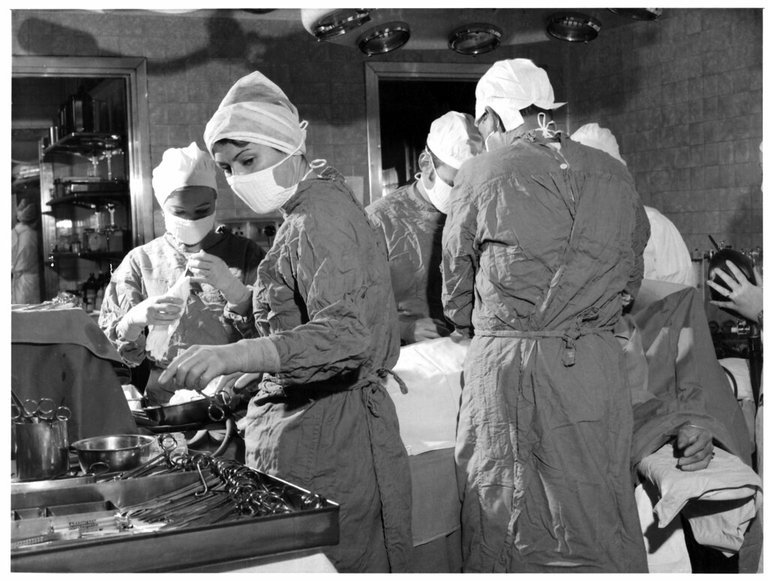Being a doctor is not an easy task, or should I say being a doctor is difficult, and it doesn't come with errors which might in some cases cost the life of their patients. I was reading about medical accidents and then I found myself in the middle of some articles and you would be so surprised to see that 1 in 20 patients suffer hospital mistakes including the one where a doctor thinks he has given a patient Anesthesia only for the patient to be awake all through the procedure because the anesthesia didn't work or he gave a different thing.
The WHO goes on to say that 50% of this accidents or mistakes are preventable. These errors lead to the death of hundreds of thousands of people and they can vary from misdiagnosing, wrong medication and surgical errors but then, they still happen and there are some mistakes that are quite disturbing for a patient's ear not to talk of medical practitioners and health workers. I guess it is right that I correct the notion that doctors who make mistakes are incompetent as this is not the case. There are several different factors that could contribute to this happening not also forgetting that the healthcare system is cumbersome to a reasonable extent.
Making mistakes in the healthcare system didn't start today, we could go back a little were we see people like Dr. Robert Liston who was a surgeon in London, considered one of the best in his time, I mean in the 19th century. The reason for being called the best in his time was because he was fast at a time were anesthetics were not yet a thing and people would go through lots of pain to undergo a procedure. In such a time, Time is of the essence because people would be awake during the procedures and they might just be surrounded by a group of learning or student doctors whose job was to hold the patient down with lots of spectators watching like they were in a conference who wanted to learn about surgery first hand.
For his speed during surgery, he was referred to as "The Fastest Knife in the West End" but one other thing he is popularly known for was taking out three of his assistant's fingers when he was about to perform surgery. It happened that the assistant wasn't ready at the time when he began to use his then surgical knife. In that surgical room, and at the same time, the knife cut the patients leg that he intended to cut, as well as went to cut the coat of another doctor bystander in the room. At the end, the patient and assistant went to the recovery room but both died of gangrene later, while the bystander that had his coat cut also died at the instant as a result of Shock or Fright.
Talking about not giving the right Anesthesia, I will discuss the case of Sherman Sizemore who sadly after the procedure committed suicide but what happened that led to this. The 73-year-old former Baptist minister was admitted to Raleigh General Hospital on Jan. 19, 2006, as a result of abdominal pain. According to the family who sued the hospital, he was wheeled in for surgery but while the medical practitioners gave him anesthesia that paralyzed him, preventing his muscles from jerking and twitching during the surgery, they forgot to give him general anesthesia that would make him unconscious for until 16 minute after the first surgical incision was made.
According to the family, Sherman Sizemore suffered excruciating pain but could not tell the medical doctors since he was paralyzed as a result of the Anesthesia. While the surgery was successful, the family says the man had been having nightmares of people burying him alive which led to him taking his life two weeks after the surgery.
Donald Church underwent surgery at the University of Washington Medical Center in Seattle in the year 2000 with the intention to remove an abdominal tumor. Trust that the doctors wheeled him into the operating room and performed the surgery. At the end, the surgery was a success and Mr Donald Church was released to go home, but then home wasn't home again for him.
He was in pain for 2 months after which he had to return back to the hospital where screening showed that Surgeons left a 13-inch metal retractor in his abdomen. Thankfully, it was retracted from his abdomen thanks to another invasive surgery but then the hospital was sued and $97,000 was paid to Mr Church in damages. I remember saying that because medical practitioners make these mistakes doesn't mean they are not good at their job, but in the case of this hospital, Mr Church's case was the fifth incident in five years where surgeons would forget instrument in patient's body.
The pursuit of excellence in medical practice demands unwavering commitment to error prevention, patient advocacy, and organizational accountability. While no one is completely perfect, malpractice should be prevented at all cost with the life of the patient being paramount on the heart of every healthcare worker in a hospital or health center. At the end of it all, this is not a reason not to go to the hospital as a person. If you have any medical issues, concern, or feel somehow health-wise, the best thing to do is to seek a medical attention immediately.
To Read More
- https://www.who.int/news-room/fact-sheets/detail/patient-safety
- https://www.facs.org/media/nggpiakr/05_liston.pdf
- https://museumofhealthcare.blog/the-story-of-robert-liston-and-his-surgical-skill/
- https://www.aamc.org/news/bloody-hands-dirty-knives-horrors-victorian-medicine
- https://www.ncbi.nlm.nih.gov/books/NBK499956/
- https://www.oginski-law.com/news/nyc-patient-catches-fire-during-tracheotomy-20120508.cfm
- https://www.nbcnews.com/health/health-news/family-sues-after-man-gets-wide-awake-surgery-flna1c9474529
- https://leightonlaw.com/12-famous-medical-malpractice-cases/

